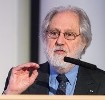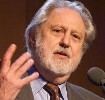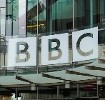BBC Charter Review (Communications Committee Report)
21/04/16
Lord Puttnam:
My Lords, I, too, welcome the opportunity of this debate. Like the noble Lord, Lord Fowler, I am very grateful to the noble Lord, Lord Best, and his committee for their sterling work. It is not the first time in your Lordships’ House that I have followed a speech on this subject by the noble Lord, Lord Fowler, and found myself in agreement with precisely every word that he has spoken, but I shall try to approach some of the issues from a slightly different angle.
Having chaired the joint scrutiny committee for the 2003 Communications Bill, I am keenly aware of the complexities of any discussion around the future of public service broadcasting; and I should at this point declare an interest: I am chairing an ongoing inquiry into the future of public service broadcasting generally, not just the BBC, and we intend to report in June.
This committee’s report which we are debating today is extremely helpful, but it was forced to be somewhat narrower than the debate needs and deserves at this late stage in the process. I entirely welcome its focus on public purpose, its support for a far more transparent process in the setting of the licence fee and its resistance to the notion of the BBC as any form of “market failure” broadcaster. I also strongly support the report’s conclusion that there is no need or justification for contestable funding, let alone further top-slicing of the BBC’s resources for other purposes. But—and it is a rather big but—the report’s remit did not allow it to address the issues of governance and those of funding more generally. It suggested scrapping a good deal of the accountability framework without really putting in place anything substantive beyond supporting Ofcom’s definition of PSB.
For me, the crucial issue for anyone seriously interested in the health of plural democracy is to focus on the overriding importance of the corporation’s independence. In one sense at least, the Secretary of State John Whittingdale has got it right. The future should not—in fact, the future cannot—be simply a version of business as usual. The overwhelming need is to restore faith in the
whole process, and to do so the Government must demonstrate their support for meaningful independence in their approach to appointments. As we are currently seeing, Governments of all persuasions can and do use the prospect of charter review and its associated funding decisions to put pressure on the BBC. For a democracy such as ours, that is a thoroughly unhealthy state of affairs. Surely, after almost a century of extraordinary success, the time has come for the BBC to be constituted on a more secure and permanent basis. I will therefore be avidly supporting the noble Lord, Lord Lester, in arguing in favour of replacing the present charter system by placing the BBC on a statutory footing, if necessary through a new Act of Parliament.
The recent review of the BBC’s governance and regulation by Sir David Clementi was right to highlight the problems that the BBC Trust has experienced since it replaced the governors as the corporation’s sovereign body. As Sir David noted, the trust model has conflated governance with regulation and, as a consequence, it has often been hard to tell who has been in charge—the executive or the trust. However, I am sure that I was not the only Member of your Lordships’ House who was disappointed to read Sir David’s suggestion that government could appoint six out of the 13 unitary board members. It is even more disturbing to hear a Conservative Secretary of State suggest that it is perfectly legitimate for government to appoint a significant majority of board members. Given that the Green Paper claims that:
“The independence of the BBC is absolutely central to its mission”,
surely any proposal to increase government influence on what is intended to be a powerful and influential body suggests precisely the opposite.
At the very least, the appointments process should resemble that of Channel 4, nine of whose 13 board members—and I was a very happy deputy chairman—are appointed by Ofcom, free of any perceptible government influence. Ideally, I would like to see a majority of board members selected through a significantly more democratic and, indeed, imaginative process, involving diverse and experienced representation drawn from right across the country.
We should all be conscious of a growing disquiet, and even an anger, over the prospect of a Whittingdale Broadcasting Corporation. I refer noble Lords to the excellent speech given by the shadow Secretary of State for DCMS on Tuesday of this week in which she quite rightly excoriated the Government for what appeared to be their bullying of the corporation during the current charter review process; for example, by floating proposals that would involve the corporation selling its stake in UKTV’s bouquet of channels, thereby stripping BBC Worldwide of one-third of its profits. I also draw the attention of the House to a warning delivered by the person who may well be this country’s most trusted public figure, Sir David Attenborough, that the Government need to,
“keep themselves at arm’s length”,
from the BBC in order to protect its independence.
The Government have an opportunity to demonstrate their support for the BBC through their deeds rather than their words, providing the corporation with the security and the scale it requires to continue in its role as the fundamental cornerstone of the public service information landscape as well as the vital engine room of the UK’s ever more successful creative industries. Yes, the BBC needs to enter into new partnerships, but these should not be imposed through top-slicing or by forcing it to become more distinctive, when it is obvious that that is simply another way of saying that it should retreat from popular formats.
For almost 20 years, I had the pleasure of sitting on the board of Anglia Television. As such, I witnessed at first hand the manner in which ill-considered legislation —in that case, the Broadcasting Act 1990—led to significant and wholly unnecessary job losses; the evisceration of an excellent regionally based training structure; a general decline in regional pride and identity; and, most regrettable of all, the erosion of democratic accountability. Noble Lords have only to consider the dramatically reduced level of visibility of any Back-Bench MP as against the situation 30 years ago—a time when every MP, along with other significant local political figures, could expect to get their views aired across their regions and to their local constituents on at least a quarterly basis. That is what I am referring
to when I speak of ill-thought-through legislation creating a damaging loss of democratic accountability.
I am pleased, however, to report that not every senior member of the Government shares a lingering antipathy towards BBC. Here is what the Lord Chancellor and Justice Secretary had to say on Radio 4, no less, just two days ago:
“Britain is a great country—the world’s fifth largest economy with the world’s best armed forces, best health service and best broadcaster. We are first in the world for soft power thanks to our language, culture and creativity”.
Unless I am very much mistaken, I do not think that Mr Gove was referring to Sky, but then who knows?
We have been assured that the White Paper on the future of the BBC will be with us shortly. We can only hope that it contains measures designed to strengthen public service broadcasting and not to eviscerate it at the behest of its commercial rivals. Indeed, we should do more than hope. I would like to believe that today’s debate will be seen as a shot across the bows of any Government from any party wishing to bring forward measures that could damage one of this country’s two most highly regarded institutions. In a world running short on trust, the BBC remains a significantly more credible organisation than any of those who, for political or for commercial reasons, seek to undermine it.
Two weeks ago I had the pleasure of chairing an event at BAFTA discussing the future of public service broadcasting. At the end of what was a very lively session, I suggested that there was such public interest in this area that any attempt by the Government to undermine the BBC and its independence would be met by a march down Whitehall that would make the Countryside Alliance look like a tea party. I sincerely believe that that could be the case. I sincerely hope that I will be there, and I sincerely believe that the rest of the country would back it.











